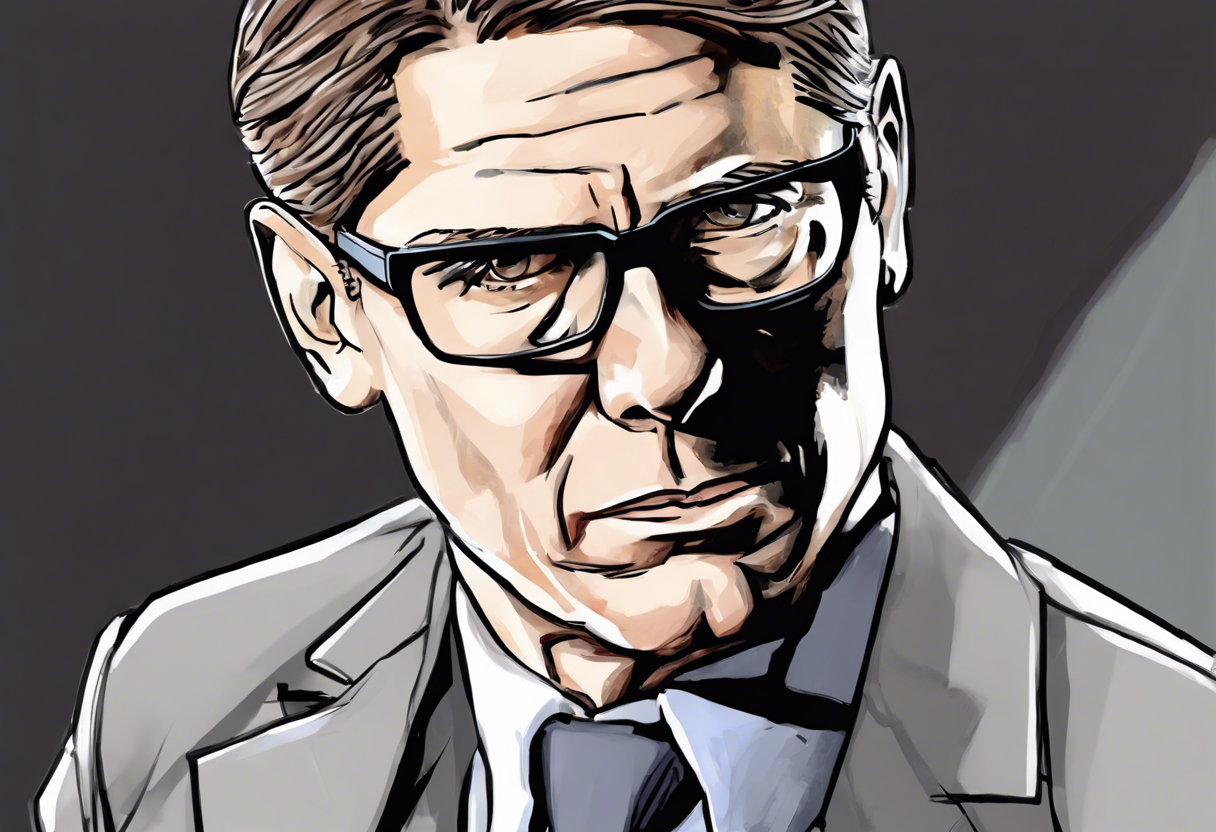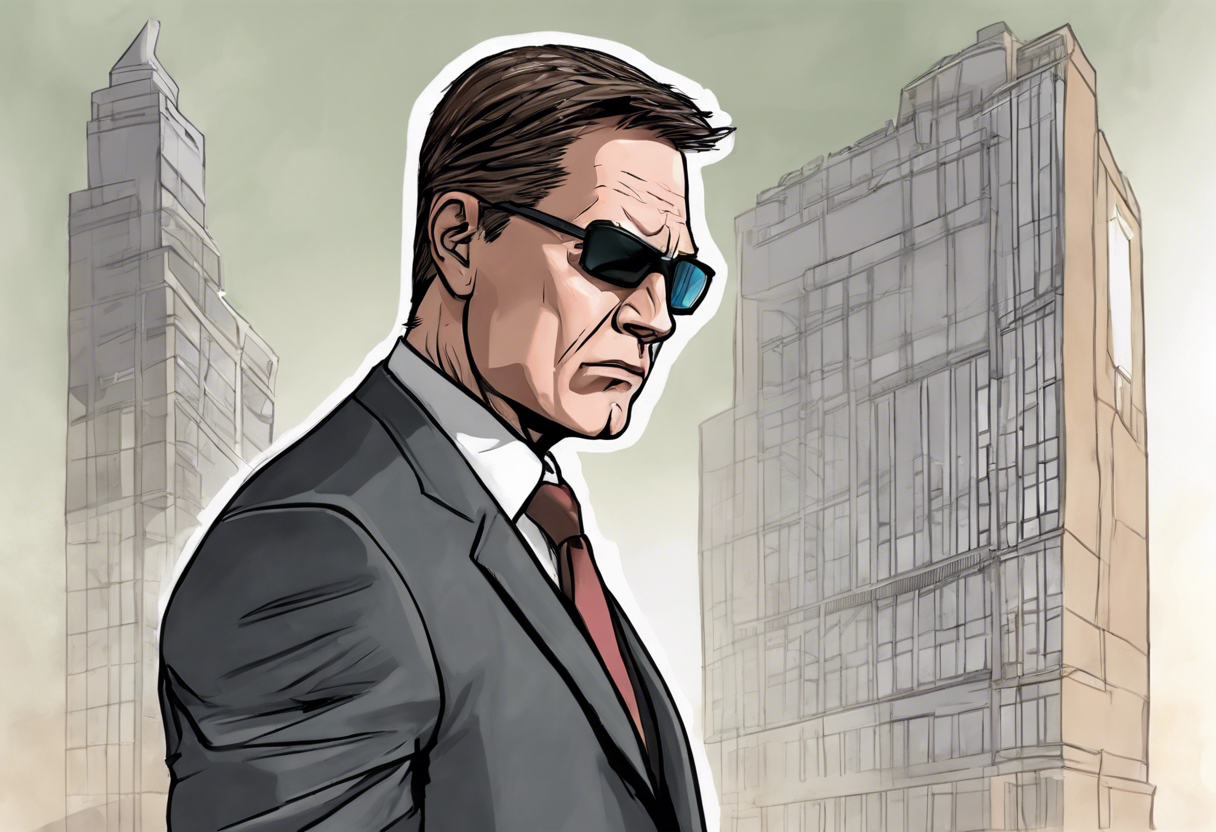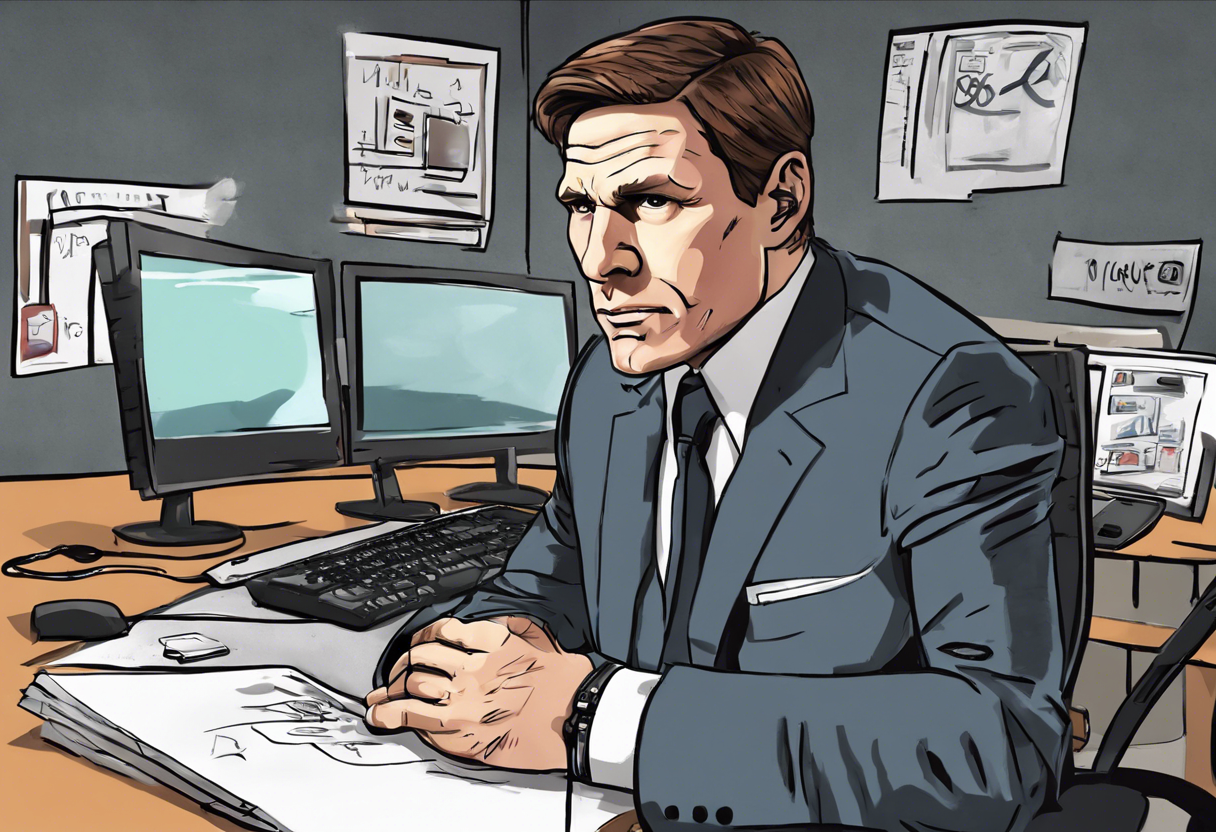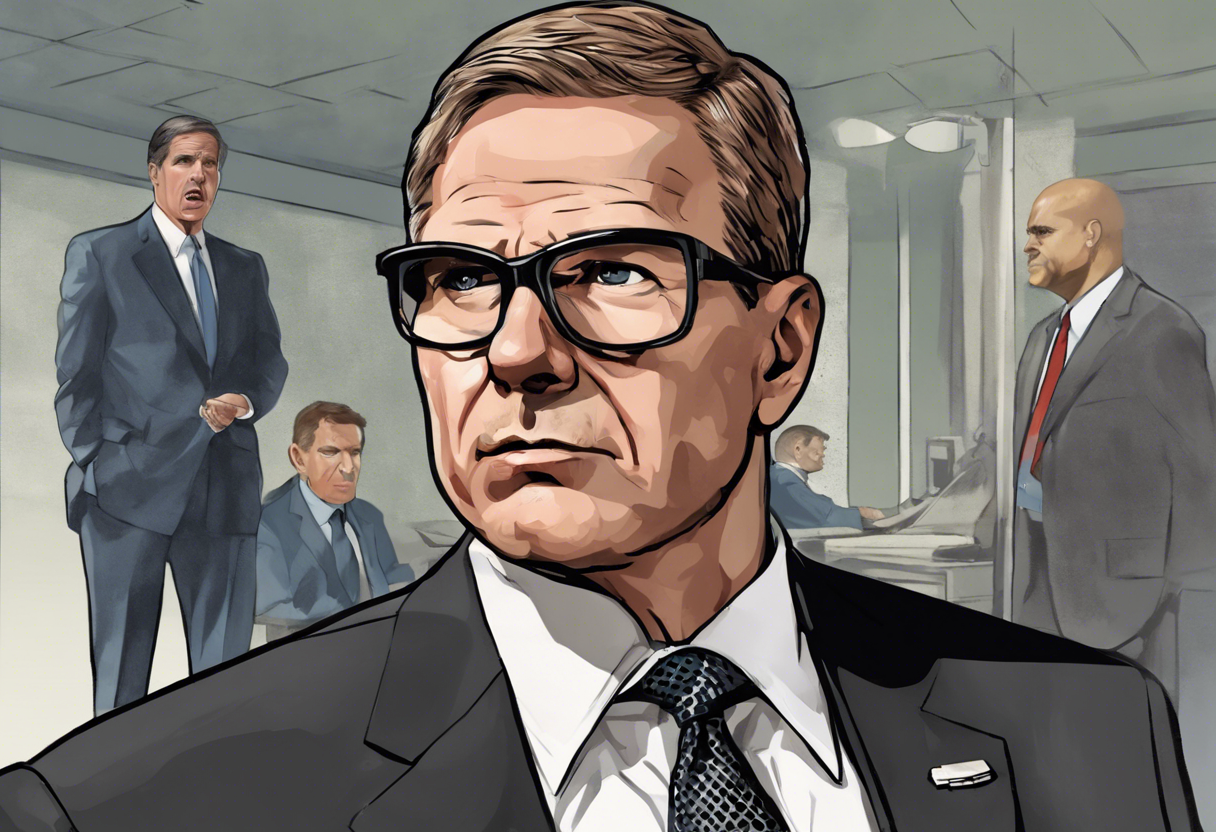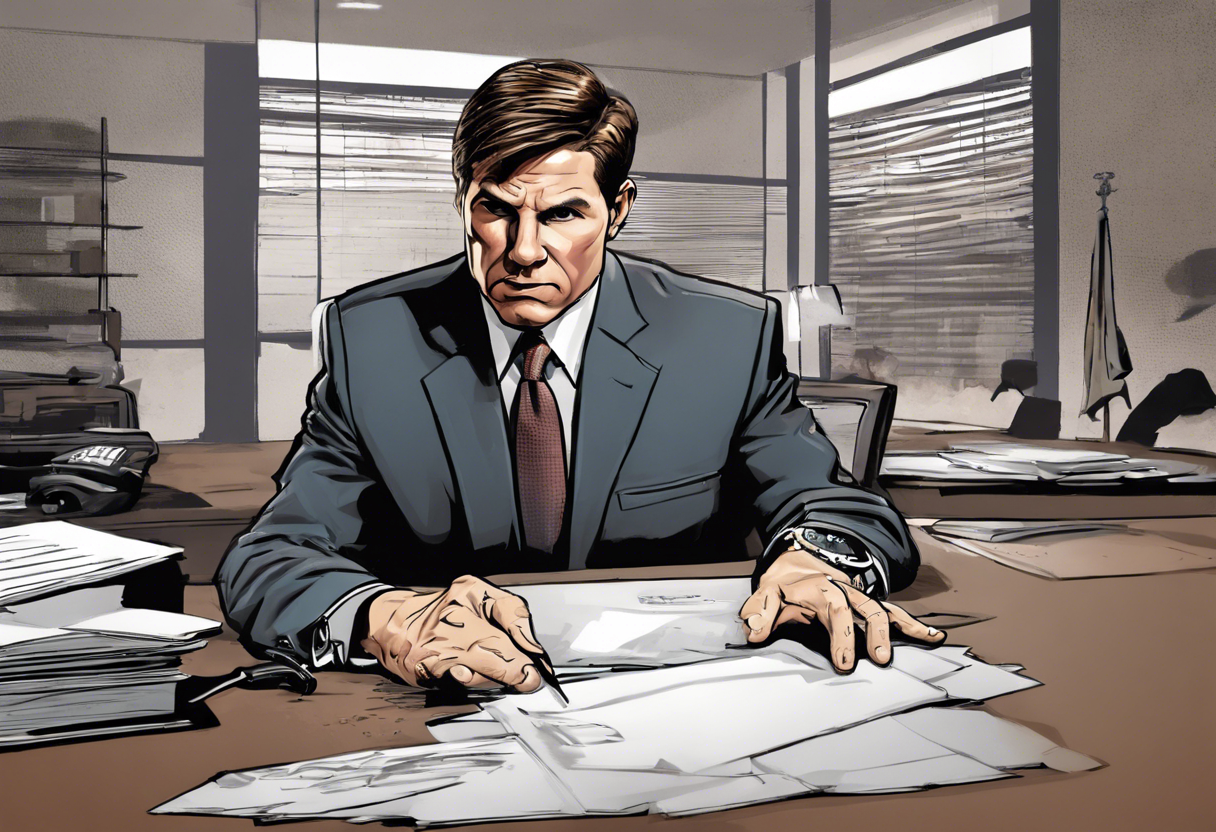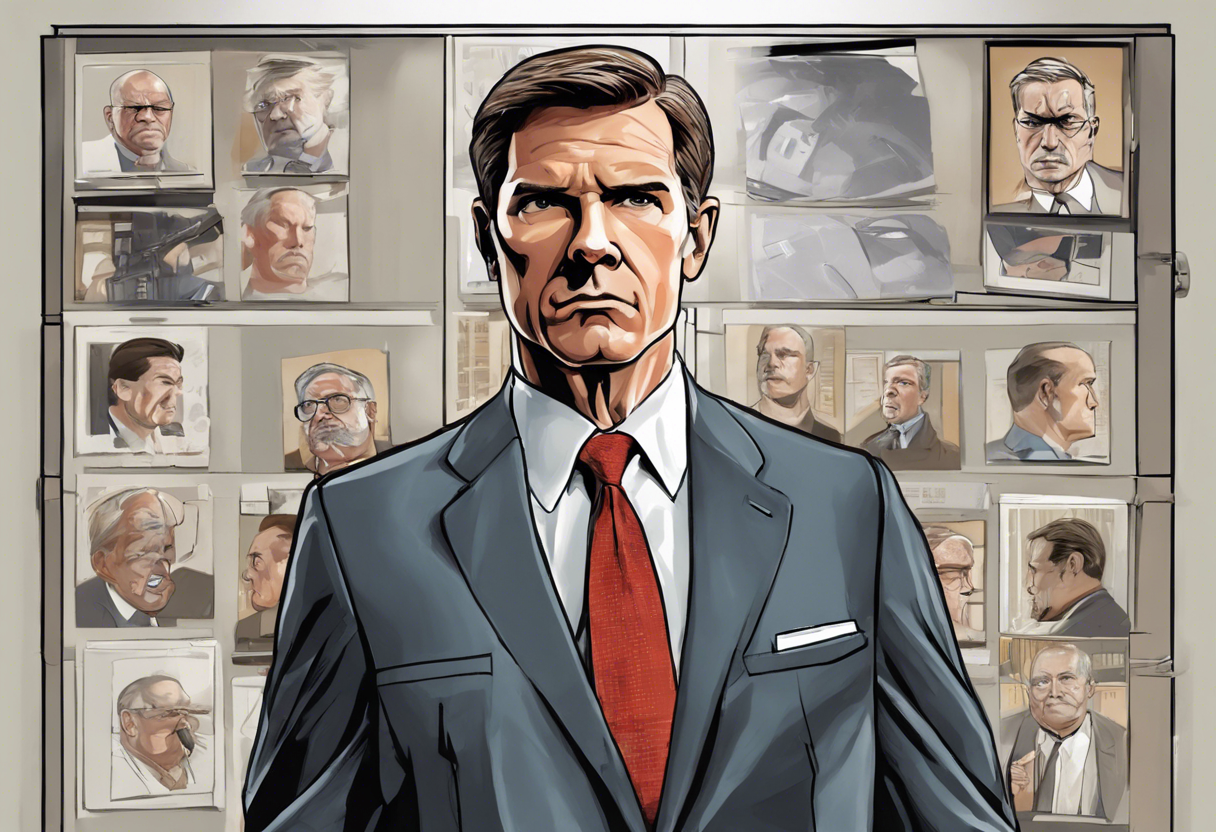The CIA Director in the Mission: Impossible Franchise
Introduction
The character of the CIA Director in the Mission: Impossible franchise is a pivotal figure, often serving as a counterpoint to the clandestine operations of the Impossible Mission Force (IMF). This character has evolved over the series, with various actors portraying different directors, each bringing their unique perspective and conflicts to the narrative. The CIA Director’s role is crucial in highlighting the tensions between official government agencies and the more autonomous, secretive operations of the IMF.
One of the most notable CIA Directors in the franchise is Eugene Kittridge, introduced in the 1996 film adaptation of Mission: Impossible, played by Henry Czerny. Kittridge is the IMF director who becomes a key figure in the CIA, reflecting the complex and often blurred lines between these intelligence agencies[1][5].
Role in the Story
Eugene Kittridge
In the 1996 film, Eugene Kittridge is initially presented as the IMF director who briefs Ethan Hunt (Tom Cruise) on his mission. However, as the plot unfolds, it becomes clear that Kittridge has been compromised, and he is working against the IMF. This betrayal sets off a chain of events where Ethan Hunt must clear his name and uncover the truth behind Kittridge’s actions.
Kittridge’s storyline involves his transition from being an IMF director to becoming a CIA director, as seen in Mission: Impossible – Dead Reckoning Part One. Here, he is involved in the global race to control a sentient entity that can manipulate cyberspace, highlighting his role in overseeing national security and intelligence operations[1][5].
Alan Hunley
Another significant CIA Director is Alan Hunley, played by Alec Baldwin, who appears in Mission: Impossible – Rogue Nation and Mission: Impossible – Fallout. Hunley is a bureaucratic figure who seeks to dismantle the IMF, viewing it as an outdated and rogue organization. His character represents the institutional skepticism and bureaucratic hurdles that the IMF often faces. Hunley’s testimony before a congressional committee underscores the themes of accountability and oversight in intelligence operations[3].
Erika Sloane
Erika Sloane, played by Angela Bassett, is introduced in Mission: Impossible – Fallout. She is the Director of the CIA who questions Ethan Hunt’s value and falls prey to the manipulations of August Walker, a rogue agent. Sloane’s character highlights the vulnerabilities within the CIA’s leadership and the challenges of dealing with internal and external threats[2].
Character Analysis
The CIA Directors in the Mission: Impossible franchise are complex characters with distinct personalities and motivations.
Eugene Kittridge
Kittridge is portrayed as a calculating and ambitious individual. His betrayal in the first film shows a willingness to sacrifice others for personal gain, highlighting a flawed moral compass. However, his later role as a CIA director suggests a level of competence and strategic thinking, albeit within a more conventional and bureaucratic framework[1][5].
Alan Hunley
Hunley is depicted as a by-the-book administrator who is skeptical of the IMF’s methods. His character embodies the tension between bureaucratic oversight and the need for flexible, autonomous operations in intelligence work. Despite his skepticism, Hunley is shown to be a competent leader who understands the broader implications of intelligence operations[3].
Erika Sloane
Sloane’s character is marked by a mix of confidence and naivety. Her inability to see through August Walker’s deception highlights her limitations in dealing with complex threats. However, her return in future films suggests an opportunity for character development and a potential shift towards greater competence and awareness[2].
Themes and Symbolism
The CIA Directors in the Mission: Impossible franchise embody several key themes and symbolic elements.
Accountability and Oversight
Characters like Alan Hunley and Erika Sloane represent the ongoing debate about the balance between intelligence agency autonomy and governmental oversight. Their roles highlight the tensions between the need for secrecy in intelligence operations and the necessity for accountability to prevent abuses of power[3].
Institutional Skepticism
The CIA Directors often serve as foils to the IMF, symbolizing the institutional skepticism towards unconventional intelligence operations. This skepticism underscores the broader theme of the franchise: the conflict between traditional bureaucratic structures and the innovative, often unorthodox methods of the IMF[3].
Global Security
The involvement of CIA Directors in plots involving global security threats, such as the sentient entity in Dead Reckoning Part One, symbolizes the real-world concerns about cyber security, intelligence gathering, and the management of global crises[5].
Cultural Impact
The CIA Directors in the Mission: Impossible franchise have had a significant cultural impact.
Public Perception
Characters like Eugene Kittridge and Alan Hunley have been well-received by audiences for their nuanced portrayals of complex bureaucratic figures. Erika Sloane’s character, while initially criticized for her naivety, has sparked discussions about the portrayal of women in leadership roles within intelligence agencies[2][3].
Adaptations and Spin-Offs
The CIA Directors have been integral to the narrative of various films in the franchise, influencing how the series explores themes of intelligence and governance. Their roles have also been referenced in other media, such as fan fiction and critical analyses, further solidifying their impact on popular culture.
Influence on Popular Culture
The depiction of CIA Directors in the Mission: Impossible franchise has influenced how intelligence agency leaders are portrayed in other films and television shows. The characters’ complexities and the themes they embody have contributed to a more nuanced public understanding of the roles and challenges faced by intelligence agencies[3].
Critical Reception
The CIA Directors have received varied critical reception over the years.
Praise
Characters like Alan Hunley have been praised for their realistic portrayal of bureaucratic challenges within intelligence agencies. Alec Baldwin’s performance was particularly noted for bringing depth to the role[3].
Criticism
Erika Sloane’s character was criticized for her lack of intuition and competence in Mission: Impossible – Fallout. However, her return in future films suggests an opportunity for redemption and character growth[2].
Interpretations
The roles of the CIA Directors have been subject to various interpretations. Some critics see them as symbols of institutional inertia, while others view them as necessary checks on the power of autonomous intelligence operations like the IMF[3].
Legacy
The CIA Directors in the Mission: Impossible franchise have left a lasting legacy in the realm of action-spy films.
Enduring Appeal
These characters continue to be relevant due to their complex portrayals and the themes they represent. The ongoing debate about intelligence agency oversight and accountability ensures that their roles remain timely and engaging.
Contemporary Relevance
In contemporary discussions about intelligence operations, surveillance, and global security, the CIA Directors in the Mission: Impossible franchise serve as compelling examples. Their stories reflect real-world concerns and contribute to a broader cultural conversation about the role of intelligence agencies in modern society.
Inspiration for Other Works
The portrayal of CIA Directors in the franchise has inspired other works in the spy and action genres. Their complex characters and the themes they embody have set a high standard for depicting intelligence agency leaders in popular media.
References
- https://en.wikipedia.org/wiki/List_of_Mission:_Impossible_characters
- https://screenrant.com/mission-impossible-all-main-characters-ranked-according-intelligence/
- https://lareviewofbooks.org/article/on-mission-impossible-and-unaccountable-government/
- https://www.cia.gov/about/director-of-cia/
- https://en.wikipedia.org/wiki/Mission:_Impossible_-_Dead_Reckoning_Part_One?oldformat=true

